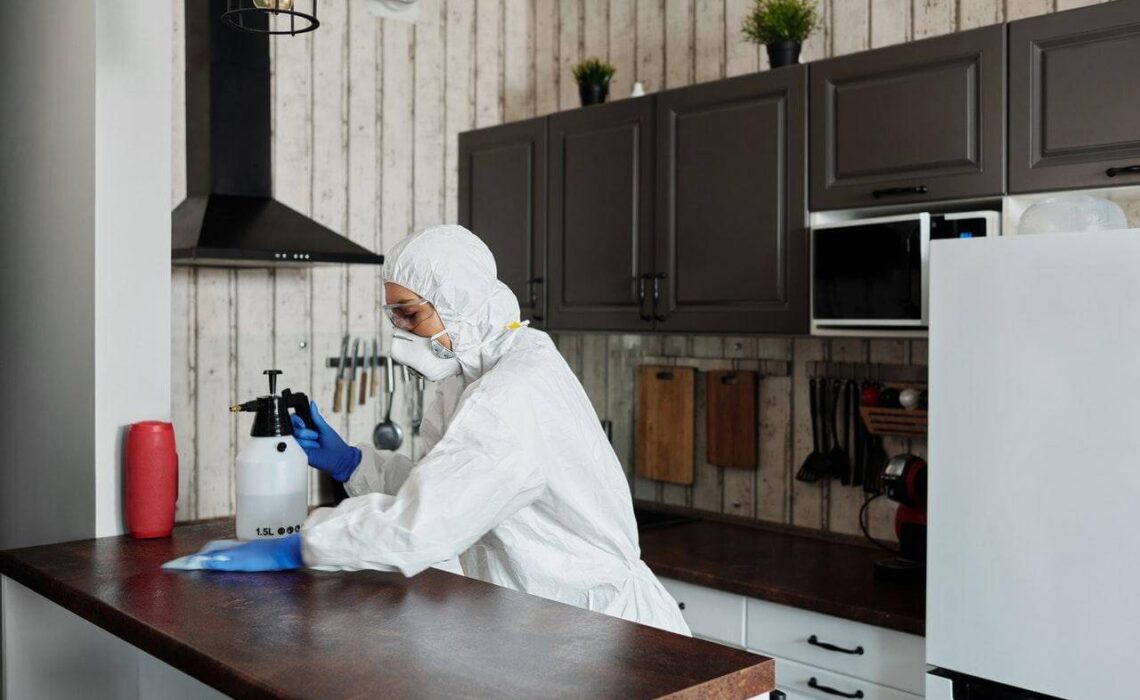In today’s world, it is so important to understand the effectiveness of disinfectants you use at work, at home, and in public to ensure your health and the health of others.
The rapid spread of the coronavirus has the world questioning what their best options are, and you may be surprised to know that many virus killing disinfectants are common household items you already have at home. If you are looking to reduce your risk of contracting a virus, follow the tips below to ensure that you are using proper disinfecting methods.
What Is the Difference Between a Viral and Bacterial Infection?
Table of Contents
Although the act of disinfecting is vital, it is important to understand the difference between a virus and a bacterial infection. Bacteria can survive on its own, but a virus needs to infect a host to stay alive. A bacterial infection is treatable with antibiotics where a virus cannot be controlled by antibiotics, but rather by treating its symptoms.
How Do You Disinfect?

Before delving into which products work best, it is important to understand the steps to take when you are disinfecting a surface. NJ Cleaning World, Inc. recommends you should begin by thoroughly cleaning surfaces of any debris. Once the surface is free of debris you should apply either a pre-saturated wipe or disinfectant spray, for the recommended contact time as shown on the label, to the desired area.
1. Safety First
When using a disinfectant, you should be sure to protect yourself against any harsh chemicals that can negatively affect your health by causing irritation and/or breathing complications. Although many commercial products claim to kill 99.9% of germs, it is important to make sure that you are using a product that is proven to kill viruses. Many household products are guaranteed to effectively kill viruses and bacteria on surfaces.
2. Alcohol
The best option for killing a virus is a broad-spectrum germicide called ethyl alcohol. You should make sure that any commercial product you use states that it contains 70% ethyl alcohol. It is best used on small surfaces; however, it is flammable and should only be used in well-ventilated areas.
3. Hydrogen Peroxide
Hydrogen peroxide is often used in health care settings as an effective way to kill viruses and other germs on surfaces. If stored properly in a dark container, hydrogen peroxide is extremely stable. Many high-leveled disinfectants contain hydrogen peroxide and are effective in killing viruses on surfaces.
4. Chlorine
Chlorine is best known for its ability to kill viruses and bacteria in pools and hot tubs, but chlorine can also be used as a household disinfectant. A chlorine-containing disinfectant should only be used on hard surfaces and never used on soft surfaces or directly applied to the skin. You should never mix chlorine with ammonia or vinegar as the combination can create noxious fumes that make it difficult to breathe.
5. Bleach
Bleach is a strong and effective way to kill viruses on surfaces. Its active ingredient is sodium hypochlorite which is known to kill bacteria, fungi, and viruses. Bleach is a widely available and affordable option but should be properly diluted and used in a well-ventilated area for at home use. Like chlorine disinfectants, bleach can also create noxious fumes when combined with ammonia or vinegar.
How to Create A Diluted Bleach Solution
Diluted household bleach will kill viruses within 10-60 minutes of its application. To create this solution, N. Vitale Disposal Inc. recommends you should mix 1-part bleach and 99 parts cold tap water. It is important to use cold water as hot water renders the sodium hypochlorite ineffective. For your safety use a mask, rubber gloves, a waterproof apron, and goggles to protect skin, eyes, and mouth from irritation.
Disinfect to Protect
It is paramount to know which disinfectants kill viruses to protect your health and the health of others. Many surfaces like doorknobs, light switches, faucets, and surfaces that are often touched by human hands should be cleaned and disinfected frequently to lower the risk of catching and spreading a viral infection.
You should always practice caution when disinfecting surfaces by protecting your skin, eyes, and mouth. With the helpful tips outlined above, you can effectively spread knowledge instead of viral infections and feel confident that you are keeping yourself and others around you safe.
- How To Create A Safe And Comfortable Home Environment For In-Home Care In Boca Raton? - July 16, 2024
- 10 Trendy Black Nail Ideas To Elevate Your Nail Game - May 6, 2024
- Getting A Free Divorce In Virginia? Here’s What To Expect - April 24, 2024





No Comments